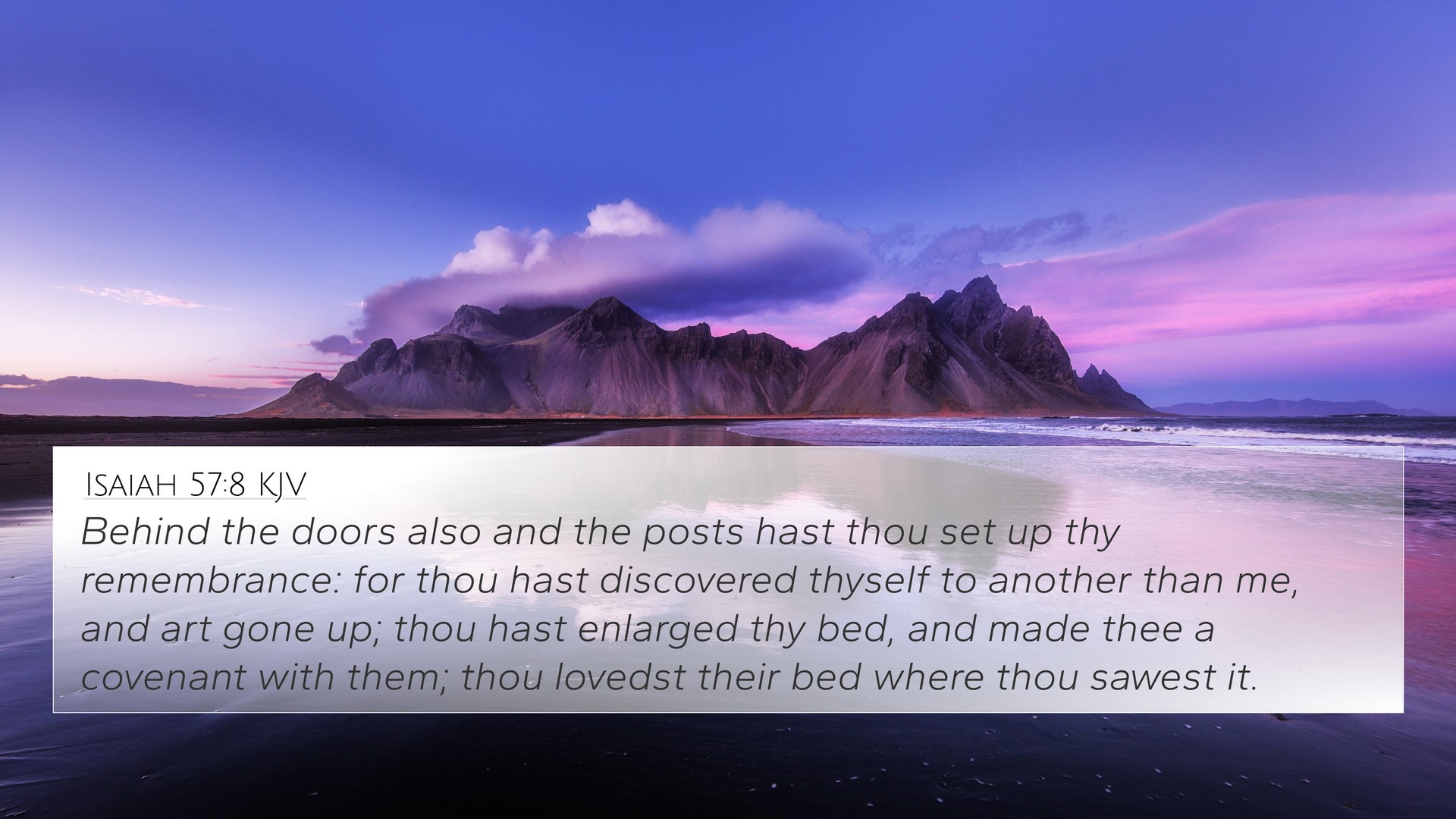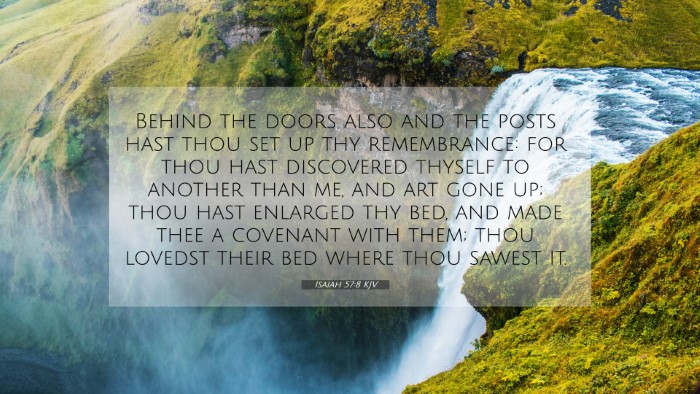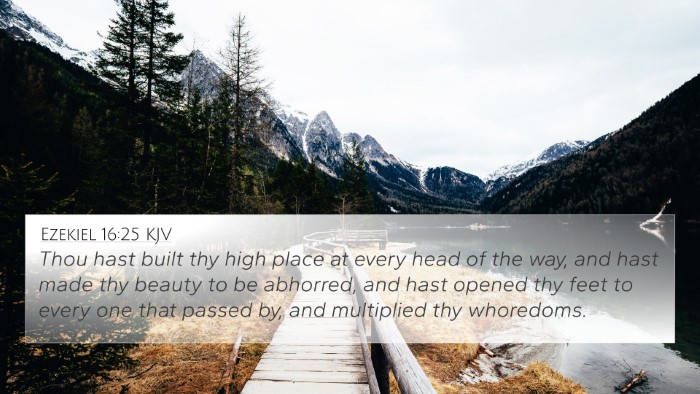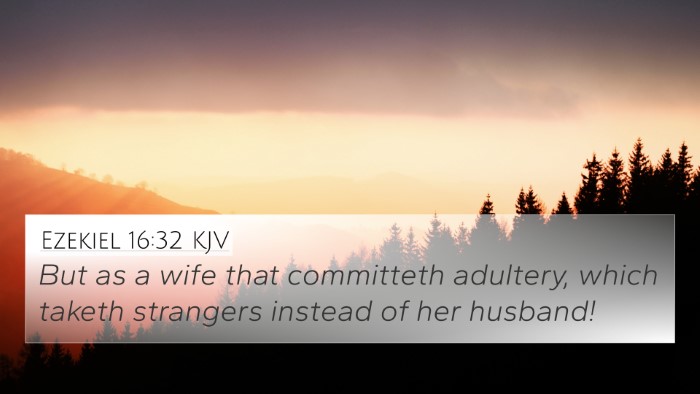Understanding Isaiah 57:8
Isaiah 57:8 states, "Behind the doors also and the posts hast thou set up thy remembrance: for thou hast discovered thyself to another than me, and art gone up; thou hast enlarged thy bed, and made thee a covenant with them; thou lovedst their bed where thou sawest it." This verse speaks to the spiritual infidelity of the people of Israel and how they have turned away from God to pursue false gods and immoral practices.
Summary of Insights
The major interpretation drawn from this verse highlights themes of:
- Spiritual Adultery: The people have forsaken their covenant with God and have sought after other idols, akin to a spouse who is unfaithful.
- Idolatry: The mention of doors and posts signifies the place of worship or the ritualistic remembrance of these idols instead of devotion to the one true God.
- Desire and Covenant: The covenant made with false gods indicates a commitment to sin, demonstrating a departure from divine promises.
- Moral Decay: The verse reflects a broader societal decline, wherein the sanctity of the relationship with God is overshadowed by lust and desire for illicit things.
Commentary Insights
Combining insights from notable public domain commentaries:
- Matthew Henry: He emphasizes that the imagery of remembrance and covenants reflects the people's disloyalty, portraying their negligence towards God's commandments while elevating their sinful desires.
- Albert Barnes: Barnes offers interpretation of the "bed" as a metaphor for indulgent behavior, signifying the extent to which the Israelites went to commit themselves to sin.
- Adam Clarke: Clarke explains that the verse symbolizes the heart's turning away from God, as the people make memorials for their sins, forgetting God's presence and blessing.
Cross-References for Isaiah 57:8
This verse can be cross-referenced with the following scriptures to deepen understanding:
- Jeremiah 2:13: Reflects on the forsaking of living water for broken cisterns, echoing similar themes of infidelity.
- Ezekiel 16:15: Illustrates the spiritual unfaithfulness of Jerusalem, showcasing the betrayal against God.
- Hosea 4:12: Discusses seeking counsel from idols, reinforcing the idol worship practices mentioned in Isaiah.
- Isaiah 1:29-31: Condemns the sinful practices that resemble the idolatry and comfort with sin seen in Isaiah 57:8.
- James 4:4: Ties in the New Testament view of friendship with the world equating to enmity with God.
- 1 John 2:15-17: Highlights love for the world versus love for the Father, emphasizing choices in spiritual allegiance.
- Revelation 2:20-22: Discusses a warning to the church regarding the influence of false teachings, drawing parallels with the covenant themes in Isaiah.
Understanding Through Connections
Exploring the connections between Bible verses can be instrumental in fully grasping the context and implications of Isaiah 57:8:
- Thematic connections: The theme of idolatry found in Isaiah can be linked with numerous passages throughout the Bible showing the consequences of forsaking God's path.
- Comparative analysis: By examining how different biblical authors discuss spiritual fidelity, deeper insights into God's expectations from His people can be gleaned.
- Inter-Biblical dialogue: Incorporating New Testament teachings on faithfulness and integrity helps illustrate the continuity of God’s message throughout Scripture.
Conclusion
Isaiah 57:8 serves as a critical reminder of the consequences of abandoning God's covenant for the allure of sin. Understanding this verse through the insights of various commentaries, as well as connecting it to other scriptural references, sheds light on the serious nature of spiritual infidelity and encourages believers to maintain their faithfulness to God. This verse calls for reflection on the covenant relationship each person shares with the Almighty and inhibits a deeper exploration of the Bible's interconnected themes.







